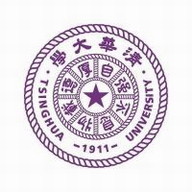Tsinghua IMBA
April 7th, 2007
Well it was bound to happen, people are asking for my advice and opinion on the Tsinghua School of Economics IMBA program. And even though I never applied to that program and was only in China six months originally, I did study at Tsinghua as an MBA exchange student from the Sauder School of Business and am now considered an alumni of Tsinghua.
The benefits of being an alumni of Tsinghua should not be underestimated, the name carries a lot of weight in Mainland China. However right now I can’t go to networking and alumni events in Beijing, the Vancouver Alumni Organization never wrote me back when I contacted them and now their website is taken over by domain squatters. I think I do have a dot cn email account for life, however after all these years I don’t think I can access it. I did get emails in Chinese from current students for a while after I graduated. This email address also allowed me to join the Tsinghua network on Facebook. I’m not a big social networker, but it was a Tsinghua undergrad student I helped who invited me to join Facebook.
Email Request
Hello,
I came across your blog while doing some research on Tsinghua IMBA program, I am a potential student for this fall. There are very little information I can find on the Internet regarding the Tsinghua IMBA and your blog has really helped me to get some insights.
I have just been informed on Monday that I will be given a phone interview tomorrow for the Tsinghua IMBA program. I understand you were only there for an exchange program but maybe you can answer some of my questions.
Can you share any information on what kind of questions I should be expecting for the Tsinghua IMBA interview? I have listed out some but those are focused on my other applications in Europe. Would it be similar to European/American MBA interviews? Is there any Chinese customs I should be aware of during an interview?
Really excited about this program, any advice/tips will be greatly appreciated!
Edited Response
I’m glad you found my website useful. I try to help people, not everyone seems to believe that anymore.
I never had a phone interview when I applied for my MBA, though Tuck wanted me to come to Tokyo and interview with them in person. These interviews are becoming more and more common. Too many people lie on their applications and cheating on the GMAT or application essays is a real problem especially among non-native English speakers.
One or two mistakes in admittance can cause a lot of problems for an MBA class down the road. This has made admission staff more diligent.
I had to write an essay to go on exchange, that essay was read by Sauder MBA program administrators. I’m not sure Tsinghua staff got to see it. I believe they got to see my resume and my transcripts. I was interviewed and asked questions about why I wanted to go to Tsinghua by Sauder staff, how this would fit in with my past work history and education, how it would help me in the future. I also stressed how I would be a good ambassador for my home school and country. I mentioned things like the benefits of learning about foreign cultures, traditions, and languages.
You should expect some similar questions to this.
The Chinese definitely have customs, based on your last name, I would suspect you are aware of a few. They try to run Tsinghua like an American business school, Sloan (MIT) helped them with their curriculum. However it is in Beijing and Chinese (Mandarin) is the language most people speak.
If you read my exchange report that I placed online you’d be aware that there were a lot of Koreans who were full time IMBA students. There were one or two Thais, a single Japanese man, and it may not have gotten mentioned but more than one person from Singapore. If you’re from Singapore you can blend in pretty well with the locals.
Among the exchange students were a number of “sea turtles”. They were often Cantonese speakers, but they didn’t necessarily know how to write Chinese characters. There were Cantonese nights out and there were exchange students from Hong Kong so they were another subgroup, they could blend in better than the Germans or the Danes.
The full time program is two years and they have some excellent exchange opportunities. They really are committed to making it as international as possible. I think they would like more non-Chinese applicants to their full time program. The problem is, although in theory it is possible to do the entire degree in English, in reality there may be courses you would like to take only offered in Chinese. One foreign exchange student who spoke good Mandarin especially for a laowai tried to take a class taught in Chinese but he couldn’t read Chinese and even if the textbook can be found in English it isn’t really feasible to excel in this situation. The language barrier extends to the classes taught in English as sometimes there is informal discussion in Chinese or guest speakers won’t have their slides all in English etc. etc.
Career services is really geared towards natives. Even if you can speak Chinese you may not find Tsinghua career services very helpful. People generally use the internet too much, but considering that the vast majority of the library books at Tsinghua are in Chinese you will be at a disadvantage in writing research papers if you can not read Chinese, but research papers don’t seem very common in MBA programs. Most Chinese MBA students rely on the Internet too much when writing papers.
I won’t lie to you, it might help if you were a tall blond Scandinavian male. The admissions staff and I know them quite well at Tsinghua were all female. I think I met one man who worked in the office of the joint CUHK Finance MBA. There were a lot of Nordic and Germanic males on exchange at Tsinghua while I was there. More than one person in admissions told me our group was better looking than the next one.
“Sea turtles” are valued by some Chinese businesses, what is really valued and can be really lacking among Chinese MBA students is work experience. Chinese MBAs like Americans often go almost straight from undergrad to graduate school. There are exceptions and as I noted in my report, Koreans seemed to be more experienced and often had better English. Chinese staff and students really try to learn from the experience of foreign students.
There are a number of female students, not 50/50 but a significant number. There are more female Chinese undergrad students so when you walk across campus or eat at the cafeteria you’ll not feel singled out. There never was a class with all males or only one female, several of my Chinese professors were females. All the TAs were female, so among PHD students there are a lot of women. There was at least one female Korean full time student, but most of the foreign full time students were male. I remember there was a girls night out organized unofficially, as I ran into them walking through Wu Dao Kou. Among exchange students it was closer to 50/50 or at least 75/25 I hung around and travelled with a number of female exchange students.
Being female might help. I’d like to think people aren’t sexist or racist, but everywhere, China included, these problems persist. I personally think Chinese women have it better in many ways than their Korean or Japanese counterparts. Mao’s statement that they hold up half the sky and the one child policy has allowed the best and brightest Chinese young women opportunities to study at the best schools, to travel abroad, to work in important positions, however not everything is rosy. China is still a male dominated society, and Chinese people can definitely hold strong viewpoints, the very very top of the Communist Party is all male.
As a Canadian I didn’t have any problems. Canadians are well liked most places we travel. Americans and Japanese might have more difficulty. I and several of the Swedish and Danish classmates were able to network with our local expat community. But after Covid-19 there are a lot less expats in China. That is not to say Americans can’t, they can. I attended a networking event put on by alumni of certain large American schools. I still get invited to many networking events now that I’ve left Beijing.
There are lots of opportunities in China. You can see and do stuff in Beijing you can’t see or do anywhere else. Getting a good job as a foreign national with limited language ability is tough without a lot of specific experience, there are teaching jobs, and there are short term opportunities, but the recruiting efforts of big firms are geared almost exclusively towards the locals.
Additional Links
Further Information
As I anticipate this posting ranks reasonably well in search engines for those searching for information in English on Tsinghua University and more specifically the International Masters of Business Administration program, I’m leaving a space to add additional information, but as alluded to by the person who wrote me, I’ve already provided a lot of information on this website concerning studying and living in Wu Dao Kou, Beijing, China.
Aparently I’m not the only person she asked, but then again interviews are high pressure situations, I haven’t done very well on them myself since March 17th, 2005.
I did eventually manage to pass all three CFA® exams and blogged even more extensively about that program and China. If you have questions about Tsinghua or the IMBA program you can leave them below.
This entry was originaly posted on , it was last edited on and is filed under: Advice and tagged: China, MBA, Tsinghua.




